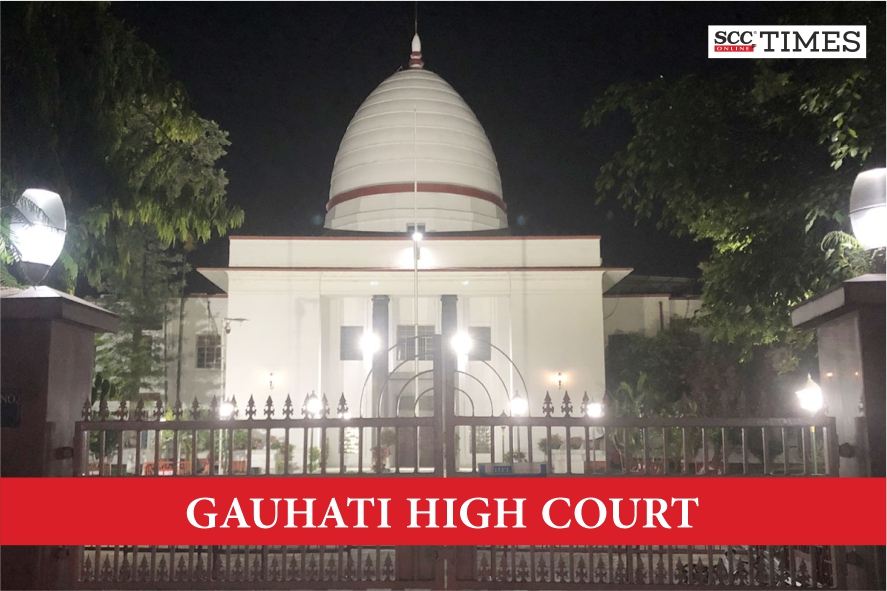Gauhati High Court: In the present case, petitioner prayed for setting aside the communications dated 09-07-2015 and 10-07-2015, whereby petitioner was informed that maternity leave and its added benefits were admissible to only regular employees of Kendriya Vidyalaya Sangathan (‘KVS’). A Single Judge Bench of Nelson Sailo, J., interfered with the impugned communications and held that petitioner would be entitled to maternity benefits provided by the Maternity Benefit Act, 1961 (‘the 1961 Act’), even though petitioner herself had given an undertaking that to claim any benefit apart from the salary offered to her, the same in view of Section 27 of the 1961 Act and the Supreme Court’s decisions, would not get in the way. The Court held that petitioner would be entitled to maternity benefits under the 1961 Act’s relevant provisions.
Background
Petitioner had a master’s degree holder in Political Science and Business Administration with specialization in Human Resources and was appointed as a part time contract teacher in Kendriya Vidyalaya, ONGC, Sivasagar for the period w.e.f. 29-06-2012 to 28-03-2013 and again w.e.f. 01-04-2013 to 28-03-2014 and subsequently w.e.f. 01-04-2014 to 04-03-2015. Petitioner got married and after her last engagement up to 04-03-2015, delivered a baby on 12-04-2015 and thereafter, petitioner did not apply for continuation of her service. On 11-02-2015, petitioner’s husband sent an application through RTI to KVS, asking whether contractual teachers were eligible for maternity benefits, and he was informed that maternity leave benefits were extended to permanent teachers only and not to contractual teachers.
Counsel for petitioner submitted that although petitioner was no longer serving in Kendriya Vidyalaya, ONGC, Sivasagar, she was entitled to receive the benefits in terms of Sections 5 and 8 of the 1961 Act. Further, counsel for respondents submitted that as per the rules and norms applicable to KVS, contract employees were not eligible to get any maternity benefits including maternity leave and against the offer for appointment on part time contract basis, petitioner had submitted her willingness with an undertaking in writing that she would not claim any benefit apart from the remuneration given to her and that she would also not claim regular appointment.
Analysis, Law, and Decision
The Court relied on MCD v. Female Workers (Muster Roll), (2000) 3 SCC 224 (‘Female Workers (Muster Roll) Case’), wherein the Supreme Court opined that Article 14 of the Constitution clearly provided that the State shall not deny to any person equality before law or the equal protection of the laws within the territory of India. The Supreme Court in Female Workers (Muster Roll) Case (supra) referred to Hindustan Antibiotics Ltd. v. Workmen, 1966 SCC OnLine SC 106 (‘Hindustan Antibiotics Ltd. Case’), wherein the Supreme Court opined that the 1961 Act nowhere provided that only regular employees would be given the benefits of maternity leave and those engaged on casual basis or muster roll or daily wage basis, would not be given the said benefits. Thus, it was held in Hindustan Antibiotics Ltd. Case (supra) that the provisions of the 1961 Act would be applicable to woman employees irrespective of their nature of engagement.
The Court also relied on Kavita Yadav v. State (NCT of Delhi), (2024) 1 SCC 421, wherein the Supreme Court opined that the expression “discharge” was of a wide import, and it would include “discharge on conclusion of the contractual period” and by virtue of the operation of Section 27 of the 1961 Act, the same would override any agreement or contract of service found inconsistent with the 1961 Act.
The Court noted that petitioner had last served on 04-03-2015 and not thereafter, and after considering the decisions of the Supreme Court, opined that petitioner would still be entitled to maternity benefits provided by the 1961 Act, even though petitioner herself had given an undertaking that to claim any benefit apart from the salary offered to her, the same in view of Section 27 of the 1961 Act and the Supreme Court’s decisions, would not get in the way.
The Court held that petitioner would be entitled to maternity benefits under the 1961 Act‘s relevant provisions. The Court directed petitioner to submit her claim for maternity benefit before Respondent 4-Principal, Kendriya Vidyalaya, ONGC, and thereafter, Respondent 4 shall examine and process the matter and grant the benefit entitled to petitioner by quantifying the same in monetary terms and disburse the same to her without delay. The Court clarified that the amount to be received by petitioner shall not only be restricted to the amount claimed by her but would also include any such other computation admissible in terms of the relevant provisions of the 1961 Act.
[Sangeeta Kormel Yadav v. Union of India, 2024 SCC OnLine Gau 1559, decided on 10-09-2024]
Advocates who appeared in this case :
For the Petitioner: S Banik, Counsel
For the Respondent: A Das, T Bora, Asstt. SGI, C K S Baruah, S C Biswas, CGC, K L R Yanthan, S Biswas







